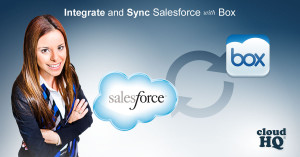As far as CRM goes, Salesforce is undoubtedly the top dog. For any sales process, its features are rich, and it adequately understands the sales flow from different sales process touch points: before, during, and after. In fact, it’s become a CRM success in large part due to the development of apps on their AppExchange Marketplace; which is very reminiscent of the way that Apple built out their App Store empire. Knowing how mission critical it is to handhold a client (or their user experience) through your sales process, most companies who value their clients will likely be using Salesforce’s CRM. Their targeted clients are primarily mid to large businesses, and their users comprise of: (1) salespeople, (2) customer service representatives, or (3) upper management personnel so that they can track the sales success of their teams or regions.
Why Collaboration Suffers:
A common need that Salesforce users have is a tool that enhances team collaboration. Considering that not everyone in an organization has a Salesforce account, it’s really hard to accurately describe the history of a client or a sales process because the Salesforce platform keeps the data in their own eco-system. Therefore, your organization has to either keep buying more licenses for its employees at $125/month a pop, or your collaboration will become more limited. It’s a fact: there’s no “I” in team. Sales is one of those peculiar processes whereby a team collaboration often holds the key to closing the deal. Maybe it’s not that coffee is for closers, but rather, that team collaboration is for closers. A simple way to collaborate with your team, Salesforce users or not, is to sync your Salesforce to a more shareable platform like Box or Dropbox. When you sync your information to your cloud storage solution provider, you can share a specific account, Salesforce Files, or opportunities with other people who don’t have access to Salesforce. They’ll clearly understand what the situation is, and will be able to help you in a much better capacity.
Here’s our Box ←→ Salesforce integration:
Backup:
It’s really annoying to backup Salesforce each week. The IT manager needs to select what to backup each week, and s/he needs to do it manually. With a sync, the entire Salesforce account is already backed up in real time. The best part: you can enable archive folders with cloudHQ so that your cloud storage provider can keep backups of all your accounts prior to any changes made. That excellent feature helps safe guard you against malicious or accidental deletions.
Here’s our Salesforce → Box backup:
Signed, cloudHQ (for closers). Try it now!

